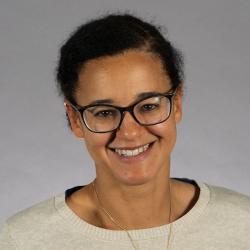Dr Nicola Patron
Associate Professor
Department of Plant Sciences
Biography
Nicola Patron is a plant molecular and synthetic biologist interested in using engineering approaches to understand biological complexity and advance plant biotechnology. She completed a PhD in plant molecular biology followed by post-doctoral research on plastid metabolism at the John Innes Centre and the University of British Columbia. As a SynBioLEAP fellow, she was recognized as an emerging leader in synthetic biology. She started her lab at the Earlham Institute in 2016 where she was also the Director of the Earlham Biofoundry, developing it as a resource for the UK’s biology and biotechnology communities to undertake large-scale projects.
Research
In our lab, we develop and apply engineering approaches to understand biological complexity and advance plant biotechnology. Our research is focused on: (i) Understanding how phenotypes emerge from network functions. The process of rewiring or reconstructing regulatory networks using synthetic biology approaches can aid the understanding of how phenotypes emerge from network functions and inform rational engineering. Our long-term goals are to develop the knowledge and technologies required to optimise crop performance through the rational engineering and rewiring of regulatory networks. (ii) Exploring and utilising metabolic diversity. Plants produce a vast array of biologically active metabolites. The richness of bioactive molecules found in plants also provides a wealth of potential pharmaceuticals, insecticides, flavours and fragrances and molecules of medicinal and industrial value. In our lab we integrate genomics, metabolomics, and transcriptomics to investigate the genetic basis of plant natural products, enabling us to understand mechanisms of metabolic diversification and explore methods for biomanufacturing. We also develop plants as photosynthetic biomanufacturing platforms, applying engineering approaches to improve purity and yield. This includes utilising our knowledge of gene regulation to engineer synthetic genetic circuits to optimise heterologous expression and engineering plants to improve their suitability and photosynthetic production chassis.



